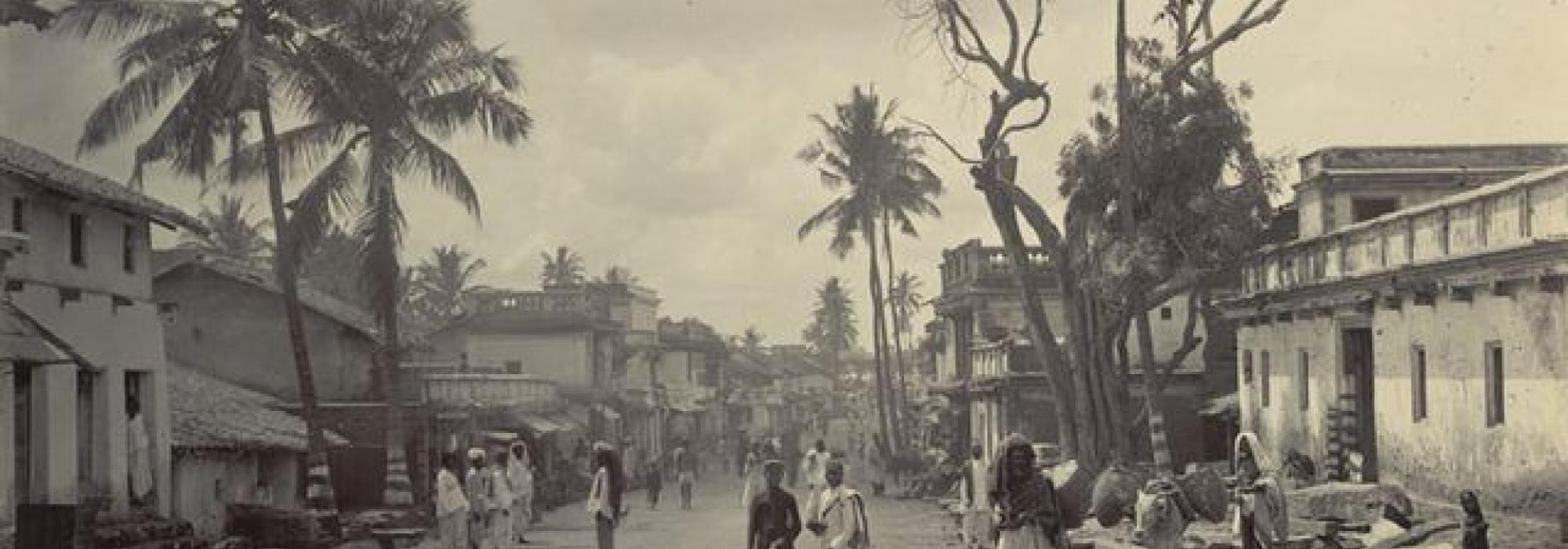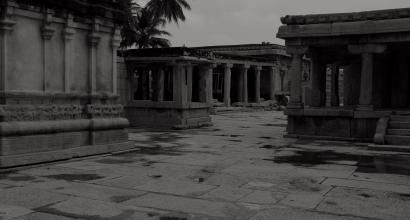Thiruvengadam Mudaliar was Armugam Mudaliar[1]’s younger brother. He was a friend of the entire world. A man with no enemies.
I was very close to Thiruvengadam. Thiruvengadam, Narasimha Murthy, M G Varadachar, K Bhimarao and I – we all lived in Chamarajpet. There was not a single day on which we did not meet. Among this group, Thiruvengadam was the one whom people loved the most. His job was in Attara Kacheri[2]. Because he was humorous and helpful, he was loved by all. So, his circle of friends and acquaintances was bigger than any other’s. Because of this large circle, the inconvenience he had to undergo was also high.
We would gather at some place or the other at seven in the morning. Thiruvengadam would join us there. That would trigger our deliberation. Which road to take? Wherever we go, folks would come to bother Thiruvengadam. Our resolve was to go on roads with no such people. For example – Let’s say we take the fourth road[3]. At the next square, some official of the secretariat would be coming. To avoid him, we go north. The said official, changing his path, would come in front of us and say, “what Sir! while I come looking for you, you are trying to escape.” Just to avoid people, we used to rush into conservancy lanes on many occasions. People would still come there and catch him.
The Curse[4]
The reason people used to come in search of Thiruvengadam was his soft nature and their belief that he could get their work done. Someone’s son needs a transfer. Or someone’s son-in-law needs a promotion. Or someone’s grandson needs a seat in a prestigious college. Or someone’s nephew wants a scholarship. Another one wants a freeship. There was no one without such requests. For all such aspirations to bear fruit, somebody’s recommendation was necessary somewhere. The man who could provide a means for that was Thiruvengadam. On Thiruvengadam’s part, this popularity was a curse.
Sense of Humour
Thiruvengadam had a great sense of humour. He used to come up with a nickname for everyone. “V S” would be “Very Stout”. “P K” would be purukalu-kaddi[5], “B R” would be bogale-ragale[6] and so on. But the nickname would suit the person’s trait. The name would be ready within the first few minutes of meeting the person. He would not laugh. While others laughed, he would ask “why are you guys laughing?”.
Dasara Journey
On one occasion, the crowd was huge in Mysore city during dasara. Many pensioners and palace guests were among that crowd. It was very difficult for them to procure tickets for their return journey. There was a stampede at the railway station.
Just when the train was about to leave that night, a retired deputy commissioner arrived. He was from Chamarajpet in Bangalore; very honourable and elderly. He had come with the hope that Thiruvengadam would help. Only eight to ten minutes were left for the train to start. He came and said “Mr. Thiruvengadam, get me in somewhere. I have no reservation. Neither have I bought a ticket. You will be here; you will provide all help – with this assurance have I come”.
Saying “it’s alright sir”, Thiruvengadam not only escorted him to the compartment offering the seat he had reserved for himself, informing him that he could spread his bed on the lower berth, but also alerted him saying “fully cover yourself with the sheets and sleep. Then no one will wake you.”
We should now imagine the layout of that compartment. It was a big train. Towards the far end was Thiruvengadam’s compartment, a second class. Rest of the train was third class (coach class). Between the second class and the coach class, there was a wooden railing. People in second class could be seen by the people travelling in third class. Thiruvengadam, giving up his second-class seat to the gentleman, was himself seated in the coach class section conversing casually with friends.
Within two or three minutes of that gentleman dozing off, another friend of Thiruvengadam entered the same compartment. Let’s call him ‘Iyengar’. He was tall, proportionately well-built, aged 35 to 40.
Iyengar’s Impatience
Thiruvengadam’s compartment had two upper and two lower berths. Four in all. Among those, the lower berths were reserved in the names of Thiruvengadam and Iyengar. Upper berths were reserved in the names of other friends. But they had not turned up by the time the train was about to depart. Since Thiruvengadam gave his berth to the gentleman, he was planning to use the upper berth for himself.
Our Iyengar was a impatient man. Lots of haste and yelling. Very gentle-minded. Very friendly, kind and respectable. Along with this, he was known for mischief. Getting into the compartment, sitting down in his berth, he removed his coat and trousers. He was an expert in cricket. He threw down the bat, leggings and other stuff in the compartment with a thud. He then felt light. The train began moving slowly. It was then that Iyengar looked around. There was only one other person in the compartment. And that person was sleeping in the berth opposite. “He should perhaps be my friend Thiruvengadam” – concluding thus, he laid himself down on the dozing gentleman, shoved his hands around him from both sides (in an embracing way) and exclaimed in Tamil “aaputiyedi munde[7]” (‘got you, you wretch’). Scared to his bones, the gentleman cried out “Oh, Thiruvengadam Mudaliar, Oh, Thiruvengadam Mudaliar!”
Thiruvengadam watched all this from start to finish from the railing of the adjacent compartment. Feigning anger, he said “Ade, …. avara e pudukireda” (‘Hey, why did you wake him up?’). Should one then see the look on our friend? He was sullen. His face fell. He immediately clutched the gentleman’s feet (in reverence); slapped himself. The gentleman understood everything.
“This is mischief”.
Kuppuswamy Mudaliar
Kuppuswamy Mudaliar was Armugam Mudaliar’s elder brother. He too was a doctor. He had retired from the post of district surgeon. He was compassionate and joyful. I have heard that he had helped many people.
Kuppuswamy Mudaliar was also passionate about Kannada literature. A deep friendship had developed between the great poet Basavappa Shastri and Kuppuswamy Mudaliar. I have heard that Shastri translated Uttara-rāma-caritam to Kannada from Sanskrit due to Kuppuswamy Mudaliar’s encouragement. The manuscripts of that Kannada Uttara-rāma-caritam remained in Kuppuswamy Mudaliar’s house for a long time.
I have watched Kuppuswamy Mudaliar on several occasions. He spoke very little. But spoke from his heart. Among the gentlemen I have known, he is one of the best.
This is the English translation of the Seventh essay in D V Gundappa’s magnum-opus Jnapakachitrashaale (Volume 7) – Hrudaya Sampannaru. Edited by G S Raghavendra.
Footnotes
[1] Appears in chapter 6 of the same volume.
[2] Lit. ‘eighteen offices’ – the present high court building.
[3] 4th Main Road, Chamarajpet.
[4] Śani-kāṭa in the original, Śani i.e. Saturn is known to cause trouble, hence the idiom.
[5] Thin, stick-like
[6] fibber
[7] Lit. Widow











































